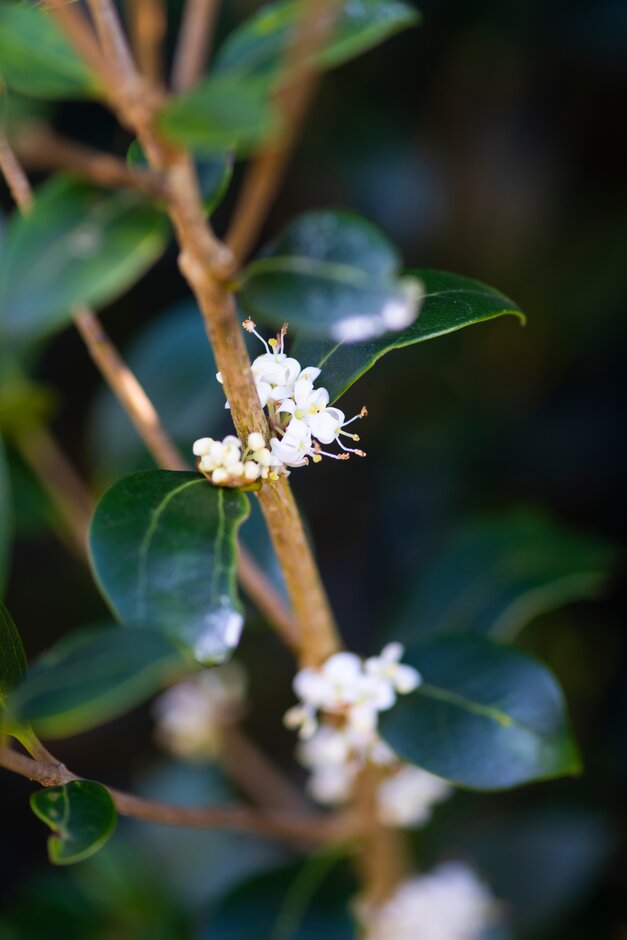Osmanthus heterophyllus
holly olive
A large, dense, evergreen shrub, ultimately reaching 5m, with holly-like, dark green, leathery leaves with spiny edges, especially on young plants. Small clusters of small, fragrant, tubular, white flowers appear in late summer to autumn, followed by blue-black berries
Size
Ultimate height
4–8 metresTime to ultimate height
10–20 yearsUltimate spread
4–8 metresGrowing conditions
Moisture
Well–drained, Moist but well–drainedpH
Acid, Alkaline, NeutralColour & scent
| Stem | Flower | Foliage | Fruit | |
| Spring | Green | |||
|---|---|---|---|---|
| Summer | White | Green | ||
| Autumn | White | Green | Black Blue | |
| Winter | Green |
Position
- Full sun
- Partial shade
Aspect
East–facing or North–facing or South–facing or West–facing
Exposure
Exposed or Sheltered Hardiness
H5Botanical details
- Family
- Oleaceae
- Native to GB / Ireland
- No
- Foliage
- Evergreen
- Habit
- Bushy
- Genus
Osmanthus can be evergreen shrubs or small trees with leathery, opposite leaves and small, usually fragrant, tubular white, yellow or orange flowers with 4 lobes, followed by ovoid blue-black fruits
- Name status
Correct
- Plant range
- Korea, Japan, Taiwan
How to grow
Cultivation
Grow in any well-drained or moist but well-drained soil, in sun or part shade. Good for woodland gardens
Propagation
Propagate by semi-hardwood cuttings
Suggested planting locations and garden types
- City and courtyard gardens
- Cottage and informal garden
- Coastal
- Low Maintenance
- Flower borders and beds
- Hedging and screens
Pruning
Pests
Generally pest-free
Diseases
May be susceptible to honey fungus
Get involved
The Royal Horticultural Society is the UK’s leading gardening charity. We aim to enrich everyone’s life through plants, and make the UK a greener and more beautiful place.
